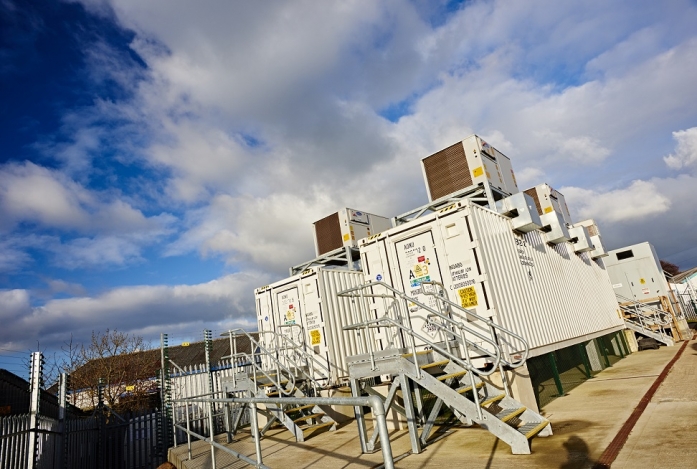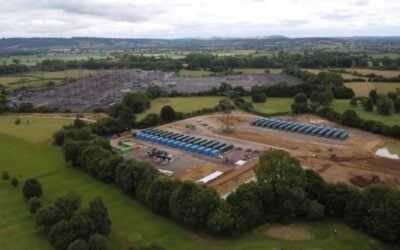
Northern Powergrid, one of the six distribution network operators (DNOs) responsible for delivering power across regions of the UK, is to plough £1.9 million (US$2.53 million) into the creation of a smart energy grid across its network, allowing its eight million customers to trade power and services using their home solar, battery systems and electric vehicles (EVs).
The distribution network operator (DNO) unveiled the three year project in London this morning (28 November) which will result in a Customer-Led Distribution System.
Enjoy 12 months of exclusive analysis
- Regular insight and analysis of the industry’s biggest developments
- In-depth interviews with the industry’s leading figures
- Annual digital subscription to the PV Tech Power journal
- Discounts on Solar Media’s portfolio of events, in-person and virtual
The new energy market will seek to link together 3.9 million homes in England’s North East and the regions of Yorkshire and northern Lincolnshire, helping them benefit from the low-carbon technologies transforming the energy network.
The DNO will seek to identify the best use of these technologies in a future smart energy system and the business models and policies necessary to support them.
Patrick Erwin, policy and markets director at Northern Powergrid, said: “The transition to a reliable, cost-effective, low-carbon network offers huge opportunities for the economic prosperity of our region. We want to build this smart grid around the needs of our customers, delivering them the best service at the lowest possible cost.
“We want to support emerging energy markets where our customers can buy the services they need as cheaply as possible, and where they can sell services from solar panels, electric vehicles and home batteries that will help balance demand on the network and make it more efficient. Importantly, we also need to ensure the future system does not unfairly impact vulnerable customers.”
Taking a ‘holistic view’ on the future energy system
Northern Powergrid says its Customer-Led Distribution System project is the first to take a holistic view of how to maximise the benefits of a future smart energy system, identifying how to accommodate large volumes of new technologies, such as local generation, at least cost while at the same time enabling customers to earn income by selling energy or services to balance the network.
As part of the project, researchers at the University of Bath and Newcastle University will develop models and laboratory demonstrations of distributed energy systems, local energy markets and network operations, tracking flows of energy, payments and information.
This virtual system will enable them to explore different approaches, using data from real networks, and will also allow them to develop strategies that may be used to coordinate network and market operations.
Meanwhile, a new expert advisory group will oversee this work and help refine it into practical reports to help the industry adapt to new roles and inform government policy. Early thinking on industry and market structures will be shared in the first quarter of 2018 with regular updates throughout the project.
Linked to system operation, it is also launching a consultation on plans to manage power losses which cost its customers around £100 million a year. Much of these occur as electricity is converted to heat as it flows through the network, and the company is exploring technical solutions, such as increasing the size of cables and reducing voltages, and market-based approaches.
These efforts will join work that the DNO has already begun to build a knowledge base for the project, such as the Energise Barnsley initiative to explore how to use home batteries to relieve pressures on the network caused by solar panels.
The trial, using Moixa batteries in 40 homes, is expected to halve residents’ energy bills, enable more solar power to be installed without upgrading the local network, and potentially save millions in the cost of running the UK’s electricity system.
Separately, domestic manufacturer Moixa has been given a £267,750 (US$298,4858) government grant to integrate third-party supplied battery systems into its proprietary Gridshare platform, which gives storage system hosts a small yearly income for allowing Moixa to aggregate batteries to provide grid services.
In the midst of ‘unprecedented change’
The entire project is aiming to address what the DNO has called the ‘unprecedented change’ currently underway in the energy system. This is as a result of increasing amounts of renewable electricity; new ways of managing supply and demand through battery storage and demand side response; and the rise in domestic technologies such as home energy storage, rooftop solar and rising levels of electric vehicles.
Erwin added: “As the network operator responsible and accountable for maintaining a safe, stable and reliable network and delivering electricity to eight million people, we believe we are best placed to seize the opportunities of this energy transition for our customers and ensure we continue to deliver them the best services at the lowest possible cost.
“We don’t have all the answers and we want the flexibility to be able to seize new opportunities, so we are collaborating within the industry to share best practice and consulting widely with customers and experts to flesh out our plans to ensure we take the right decisions.”
The UK’s six separate DNOs are making big changes to the way they operate in accomodating this energy transition, with an expectation that they will migrate to a distribution system operator (DSO) status in the next couple of years, with more emphasis on procuring services to balance the network. Another DNO, UK Power Networks, is launching a tender in January to obtain 34MW of flexibility services. Elsewhere in the UK, utility Centrica is looking to install up to 100 residential energy storage batteries in selected homes in Cornwall, in the southwest of England, in a local energy market (LEM) trial.






